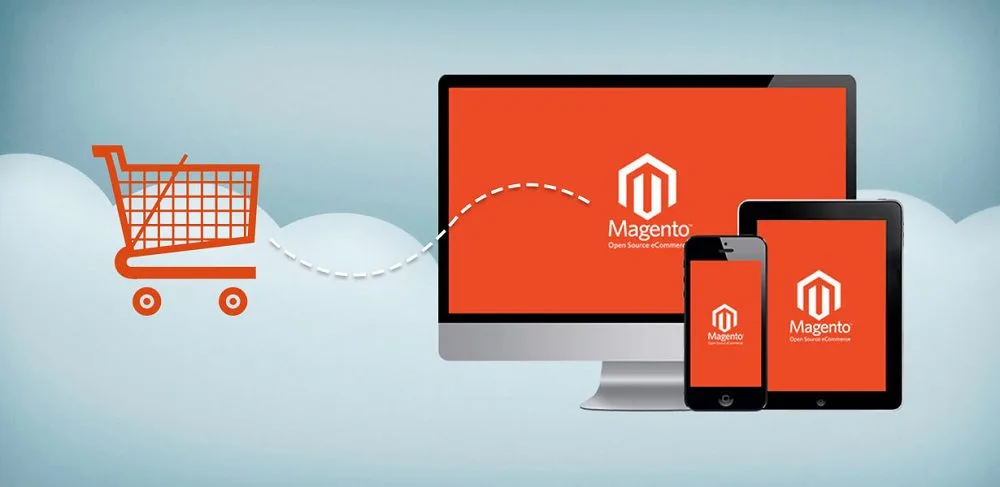Struggling to find the best B2B ecommerce platforms? We unveil the best options for businesses in 2024. Compare features, pricing and find your perfect fit! Unlock the Secrets at the End!
In today’s digital age, B2B eCommerce platforms have become a necessity for businesses looking to stay competitive and drive sales. With the rise of digital commerce, B2B companies are now expected to provide a seamless online buying experience for their customers.
But with so many options available, how do you choose the best B2B eCommerce platform for your business? In this article, we’ll unveil the top B2B eCommerce platforms and discuss how they can elevate your sales.
Why B2B eCommerce Platforms Are Essential for Your Business
Before we dive into the best B2B eCommerce platforms, let’s first understand why they are essential for your business. In today’s digital age, B2B buyers expect a seamless and convenient online experience, just like B2C consumers. A B2B eCommerce platform can provide exactly that.
Meeting Customer Expectations

In today’s digital world, customers expect a seamless online buying experience, regardless of whether they are purchasing for personal or business use. B2B eCommerce platforms allow businesses to meet these expectations by providing a user-friendly and efficient online buying process.
Increased Efficiency and Cost Savings
By automating the ordering process, B2B eCommerce platforms can significantly increase efficiency and save businesses time and money. With features such as self-service portals, customers can easily place orders, track shipments, and manage their accounts without the need for manual assistance from sales representatives.
Global Reach
With a B2B eCommerce platform, businesses can expand their reach beyond their local market and tap into a global customer base. This allows for increased sales opportunities and growth potential.
Top B2B eCommerce Platforms
Now that we understand the importance of B2B eCommerce platforms, let’s take a look at the top options available.
Shopify Plus
Shopify Plus is a popular choice for B2B businesses looking for a scalable and customizable eCommerce platform. With features such as multi-channel selling, wholesale pricing, and advanced analytics, Shopify Plus allows businesses to create a personalized and efficient buying experience for their customers.
Magento Commerce

Magento Commerce is a highly customizable and feature-rich B2B eCommerce platform. With its open-source platform, businesses have the flexibility to create a unique online store that meets their specific needs. Magento Commerce also offers advanced B2B features such as custom pricing, bulk ordering, and customer-specific catalogs.
BigCommerce B2B
BigCommerce B2B is a comprehensive B2B eCommerce platform that offers a user-friendly interface and advanced B2B features. With its built-in B2B functionality, businesses can easily manage complex pricing structures, customer-specific catalogs, and bulk ordering. BigCommerce B2B also integrates with popular ERP systems, making it a seamless addition to existing business processes.
Salesforce B2B Commerce
Salesforce B2B Commerce is a cloud-based platform that offers a personalized and streamlined buying experience for B2B customers. With its advanced AI capabilities, businesses can provide personalized product recommendations and targeted marketing campaigns to their customers. Salesforce B2B Commerce also integrates with Salesforce’s CRM, allowing for a seamless customer experience.
Oracle Commerce Cloud

Oracle Commerce Cloud is a robust B2B eCommerce platform that offers a wide range of features to help businesses drive sales. With its advanced search capabilities, businesses can provide a user-friendly and efficient buying experience for their customers. Oracle Commerce Cloud also offers features such as custom pricing, customer-specific catalogs, and advanced analytics.
How B2B eCommerce Platforms Can Elevate Your Sales
Now that we’ve explored the top B2B eCommerce platforms, let’s discuss how they can elevate your sales.
Improved Customer Experience
With a B2B eCommerce platform, businesses can provide a seamless and personalized buying experience for their customers. This can lead to increased customer satisfaction and loyalty, ultimately resulting in higher sales.
Increased Efficiency and Cost Savings

By automating the ordering process, B2B eCommerce platforms can significantly increase efficiency and save businesses time and money. With features such as self-service portals, businesses can reduce the need for manual assistance from sales representatives, freeing up their time to focus on other tasks.
Global Reach
With a B2B eCommerce platform, businesses can expand their reach beyond their local market and tap into a global customer base. This allows for increased sales opportunities and growth potential.
Data-Driven Decision Making
B2B eCommerce platforms offer advanced analytics and reporting capabilities, allowing businesses to make data-driven decisions to improve their sales strategies. With insights into customer behavior and buying patterns, businesses can tailor their marketing and sales efforts to better meet their customers’ needs.
Choosing the Right B2B eCommerce Platform for Your Business
When choosing a B2B eCommerce platform, it’s essential to consider your business’s specific needs and goals. Here are some factors to consider when making your decision:
Scalability
As your business grows, you’ll need a platform that can scale with you. Look for a platform that offers customizable features and can handle a high volume of orders.
Integration Capabilities
Consider the systems and tools your business currently uses and ensure that the B2B eCommerce platform you choose can integrate with them seamlessly. This will help streamline your business processes and improve efficiency.
B2B-Specific Features
Different B2B eCommerce platforms offer different features, so it’s essential to consider which features are most important for your business. For example, if you have a complex pricing structure, you’ll want a platform that offers custom pricing capabilities.
Support and Training
Choose a platform that offers reliable support and training resources to help you get the most out of your B2B eCommerce platform. This will ensure that you can quickly resolve any issues and make the most of the platform’s features.
How Does B2B Ecommerce Work ?
B2B eCommerce, or business-to-business electronic commerce, involves online transactions between businesses. Here’s how B2B eCommerce typically works:
- Online Platform: B2B eCommerce operates through online platforms where businesses can buy and sell products or services. These platforms are designed to facilitate transactions between businesses in a digital environment.
- Account Setup: Businesses interested in engaging in B2B eCommerce usually need to create an account on the platform. This account setup process may involve providing business information, verifying credentials, and setting up payment methods.
- Product Catalog: Sellers on B2B eCommerce platforms create digital product catalogs showcasing their offerings. Buyers can browse through these catalogs to find products or services that meet their business needs.
- Negotiation and Pricing: B2B transactions often involve negotiation between the buyer and seller regarding pricing, quantities, and terms. Sellers may offer discounts for bulk orders, customized pricing for specific buyers, or other incentives to close deals.
- Order Placement: Once the terms are agreed upon, buyers can place orders through the platform. This process may involve selecting products, specifying quantities, choosing delivery options, and making payments.
- Order Fulfillment: After receiving an order, sellers fulfill it by packaging the products, arranging for shipping or delivery, and providing necessary documentation such as invoices or receipts.
- Payment Processing: B2B eCommerce platforms facilitate secure payment processing between businesses. Payment methods may include credit cards, electronic funds transfer (EFT), purchase orders, or other forms of payment agreed upon by the parties.
- Customer Relationship Management (CRM): B2B eCommerce often integrates with CRM systems to manage customer interactions, track sales leads, and provide personalized services to buyers. CRM tools help businesses build and maintain strong relationships with their B2B customers.
- Analytics and Reporting: B2B eCommerce platforms offer analytics and reporting tools to track sales performance, monitor customer behavior, and generate insights for business decision-making. By analyzing data, businesses can optimize their sales strategies and improve customer satisfaction.
Overall, B2B eCommerce works by leveraging digital technologies to streamline transactions, enhance business relationships, and drive efficiency in the buying and selling process between businesses.
Essential Features for B2B Success

Essential Features for B2B Success:
When it comes to B2B success, there are several essential features that a B2B eCommerce platform should offer:
- Custom Pricing: The ability to set custom pricing for different customers or customer groups based on negotiated contracts, volume discounts, or other criteria is crucial for B2B transactions.
- Multiple Payment Options: Providing various payment methods such as credit cards, electronic funds transfer (EFT), purchase orders, and other forms of payment can cater to the diverse needs of B2B buyers.
- Advanced Search and Filtering: Robust search and filtering capabilities help B2B buyers quickly find the products or services they need, improving the overall user experience.
- Integration with ERP Systems: Seamless integration with Enterprise Resource Planning (ERP) systems allows for efficient management of inventory, orders, and customer data across the organization.
- Scalability and Flexibility: A B2B eCommerce platform should be scalable to accommodate business growth and flexible enough to adapt to changing market demands and customer needs.
- Personalized Catalogs and Pricing: Offering personalized product catalogs and pricing based on customer preferences, purchase history, or contract terms can enhance the customer experience and drive repeat business.
- Mobile Responsiveness: With the increasing use of mobile devices for business transactions, a mobile-responsive design is essential to ensure a seamless buying experience on any device.
By incorporating these essential features into a B2B eCommerce platform, businesses can enhance their online presence, improve customer satisfaction, and drive success in the competitive B2B marketplace.
Address Specific B2B Needs
Addressing specific B2B needs is crucial for the success of businesses operating in the B2B eCommerce space. Understanding and catering to the unique requirements of B2B customers can help businesses differentiate themselves and build strong relationships. Some key strategies to address specific B2B needs include:
- Tailored Pricing and Discounts: Offering personalized pricing based on the volume of orders, contract terms, or customer loyalty can attract and retain B2B clients. Providing discounts for bulk purchases or long-term commitments can also incentivize repeat business.
- Customized Catalogs: Creating customized product catalogs tailored to the specific needs of individual B2B clients can streamline the purchasing process. Organizing products based on industry, usage, or preferences can help buyers find relevant items quickly.
- Streamlined Ordering Processes: Simplifying the order placement process by allowing for quick reordering of frequently purchased items, creating templates for recurring orders, or integrating with procurement systems can enhance efficiency for B2B buyers.
- Enhanced Customer Support: Offering dedicated account managers, providing technical assistance, and resolving issues promptly are essential for B2B relationships. Building a strong support system can instill confidence in buyers and foster long-term partnerships.
- Integration Capabilities: Seamless integration with buyers’ systems such as ERP, CRM, or inventory management software can streamline operations and improve data accuracy. Compatibility with existing technologies is vital for B2B clients looking for efficient solutions.
By addressing these specific B2B needs, businesses can meet the expectations of their clients, enhance the overall buying experience, and establish themselves as reliable partners in the B2B eCommerce landscape.
Bulk Ordering & Quoting
Bulk ordering and quoting are essential functionalities for B2B eCommerce platforms that cater to businesses looking to purchase products or services in large quantities.
Bulk Ordering:
- Efficiency: Bulk ordering allows B2B buyers to quickly purchase a large number of items in a single transaction, saving time and effort.
- Cost Savings: Buying in bulk often leads to volume discounts or lower unit prices, helping businesses reduce their overall procurement costs.
- Convenience: B2B buyers can replenish their inventory or stock up on supplies efficiently by placing bulk orders.
- Streamlined Processes: Bulk ordering features such as the ability to upload CSV files with product quantities or easily duplicate previous orders can streamline the purchasing process.
Quoting:
- Negotiation: Quoting functionality enables B2B buyers to request quotes for specific products or services, allowing for price negotiation based on volume, terms, or other factors.
- Customization: Businesses can provide personalized quotes tailored to individual customer needs, helping to secure deals and build strong relationships.
- Transparency: Quoting tools offer transparency in pricing and terms, ensuring clarity for both buyers and sellers.
- Decision-Making: Detailed quotes with itemized costs and quantities empower buyers to make informed purchasing decisions.
By incorporating robust bulk ordering and quoting capabilities into a B2B eCommerce platform, businesses can streamline the procurement process, facilitate large-scale transactions, and meet the specific needs of their B2B customers effectively.
Negotiation & Approval Workflows
Negotiation and approval workflows are critical components of B2B eCommerce platforms that facilitate the process of finalizing deals and ensuring compliance within organizations.
Negotiation:
- Customized Deals: Negotiation workflows allow B2B buyers and sellers to tailor deals based on specific requirements such as pricing, quantities, delivery schedules, and payment terms.
- Flexibility: Negotiation tools provide flexibility for parties to discuss and adjust terms until a mutually beneficial agreement is reached.
- Transparency: Transparent negotiations help build trust between businesses by ensuring clarity on terms, conditions, and expectations.
- Efficiency: Automated negotiation processes can speed up deal closures by reducing manual back-and-forth communication and streamlining the approval process.
Approval Workflows:
- Authorization: Approval workflows define the hierarchy and process for obtaining necessary approvals within an organization before finalizing a purchase or contract.
- Compliance: Approval processes ensure that transactions adhere to internal policies, budget constraints, legal requirements, and other regulatory standards.
- Accountability: Approval workflows establish accountability by tracking the individuals responsible for reviewing and approving transactions.
- Audit Trail: Maintaining an audit trail of approval workflows provides visibility into the decision-making process, aiding in accountability and compliance efforts.
By incorporating robust negotiation and approval workflows into a B2B eCommerce platform, businesses can enhance transparency, efficiency, and compliance in their B2B transactions, leading to smoother deal closures and stronger business relationships.
Payment Options Tailored for B2B
When it comes to B2B eCommerce, offering payment options tailored to the specific needs of business customers is crucial for facilitating transactions and building strong relationships. Some key payment options that are commonly tailored for B2B transactions include:
- Invoice Billing: Providing the option for invoice billing allows B2B customers to make purchases and receive invoices with agreed-upon payment terms. This flexibility is essential for businesses that prefer to pay on a net-30, net-60, or other agreed-upon timeline.
- Credit Terms: Offering credit terms to established B2B clients can help build trust and loyalty. Businesses can extend lines of credit based on creditworthiness, allowing customers to make purchases and pay at a later date.
- Purchase Orders: Accepting purchase orders from B2B customers streamlines the ordering process for businesses that have internal procurement procedures. Integrating purchase order systems into the eCommerce platform can enhance efficiency and accuracy.
- Payment Gateways: Integrating payment gateways that support B2B transactions, such as ACH transfers or wire transfers, can provide secure and convenient payment options for businesses. These gateways ensure that transactions are processed efficiently and securely.
- Volume Discounts: Offering discounts based on order volume incentivizes B2B customers to place larger orders. Businesses can set tiered pricing structures to reward bulk purchases and encourage repeat business.
By incorporating these tailored payment options into a B2B eCommerce platform, businesses can cater to the unique needs of their B2B customers, streamline the purchasing process, and foster long-term relationships based on trust and convenience.
Customer Relationship Management (CRM) Integration
Customer Relationship Management (CRM) integration is a crucial aspect of B2B eCommerce platforms that enables businesses to manage and analyze customer interactions and data throughout the customer lifecycle. By integrating CRM systems into the eCommerce platform, businesses can streamline processes, enhance customer relationships, and drive sales effectively.
Benefits of CRM Integration:
- Centralized Customer Data: CRM integration allows businesses to centralize customer data, including contact information, purchase history, preferences, and interactions. Having a unified view of customer data enables personalized marketing, targeted communication, and improved customer service.
- Improved Customer Insights: By integrating CRM systems with the eCommerce platform, businesses can gain valuable insights into customer behavior, preferences, and buying patterns. This data can be used to segment customers, create targeted marketing campaigns, and tailor product offerings to meet specific needs.
- Enhanced Lead Management: CRM integration enables seamless lead management by capturing leads from the eCommerce platform, tracking their interactions, and nurturing them through the sales funnel. Businesses can prioritize leads, assign them to sales representatives, and track the progress of each lead to conversion.
- Efficient Sales Processes: Integrating CRM systems with the eCommerce platform streamlines sales processes by automating tasks such as lead assignment, opportunity tracking, and order management. Sales teams can access real-time customer data, track interactions, and collaborate effectively to close deals faster.
- Personalized Customer Experiences: CRM integration empowers businesses to deliver personalized customer experiences by leveraging customer data to tailor interactions, offers, and recommendations. By understanding customer preferences and behavior, businesses can create meaningful engagements that drive loyalty and repeat business.
- Improved Reporting and Analytics: By integrating CRM systems with the eCommerce platform, businesses can generate comprehensive reports and analytics on sales performance, customer behavior, and marketing effectiveness. These insights enable data-driven decision-making, performance tracking, and continuous optimization of sales and marketing strategies.
Incorporating CRM integration into a B2B eCommerce platform can significantly enhance customer engagement, sales effectiveness, and overall business performance. By leveraging CRM data and insights, businesses can build stronger relationships with customers, drive revenue growth, and stay competitive in the dynamic B2B landscape.
Enterprise Resource Planning (ERP) Integration
Enterprise Resource Planning (ERP) integration is a critical component of B2B eCommerce platforms that enables businesses to streamline operations, enhance efficiency, and improve decision-making by connecting various business functions and processes.
- Data Synchronization: ERP integration allows for seamless data synchronization between the eCommerce platform and other systems such as inventory management, accounting, and order processing. This ensures that information is up-to-date and accurate across all systems, reducing errors and improving overall productivity.
- Process Automation: By integrating ERP systems with the eCommerce platform, businesses can automate key processes such as order fulfillment, inventory management, and financial reporting. Automation helps eliminate manual tasks, reduce processing times, and increase operational efficiency.
- Real-Time Insights: ERP integration provides real-time insights into business performance, inventory levels, sales trends, and customer behavior. By accessing up-to-date data from integrated systems, businesses can make informed decisions, identify opportunities for growth, and respond quickly to market changes.
- Enhanced Customer Experience: ERP integration enables businesses to deliver a seamless customer experience by providing accurate product information, order tracking, and personalized services. Customers benefit from faster order processing, timely updates on their purchases, and improved service quality.
- Scalability: Integrated ERP systems offer scalability to accommodate business growth and expansion. As businesses evolve, ERP integration allows for the seamless addition of new functionalities, customization options, and integrations with third-party applications to meet changing business needs.
By incorporating ERP integration into a B2B eCommerce platform, businesses can achieve operational excellence, improve data accuracy, enhance customer satisfaction, and drive growth in the competitive B2B marketplace.
B2B eCommerce platforms go beyond traditional B2C platforms by offering functionalities specifically catered to businesses, such as:
- Complex order processing: Handling bulk orders, custom pricing structures, and integration with existing business systems (ERP, CRM).
- Account management: Providing features for managing customer accounts, order history, and self-service options for B2B buyers.
- Security and compliance: Ensuring secure transactions, data privacy, and adherence to industry regulations.
Conclusion
B2B eCommerce platforms are essential for businesses looking to stay competitive and drive sales in today’s digital world. By providing a seamless and efficient buying experience for customers, businesses can improve customer satisfaction and loyalty, increase efficiency and cost savings, and expand their reach globally. When choosing a B2B eCommerce platform, consider your business’s specific needs and goals to find the best fit. With the right platform, you can elevate your sales and take your business to new heights.
why to have b2b ecommerce platform?
B2B ecommerce platforms offer several advantages: Increased Sales & Efficiency: Streamlines ordering processes, improves self-service options for buyers, and potentially boosts sales. Reduced Costs: Saves time and money on manual order processing and communication. 24/7 Availability: Makes your products and services accessible to buyers anytime, anywhere. Improved Customer Experience: Provides a user-friendly platform for B2B transactions, enhancing customer satisfaction. Data & Analytics: Offers valuable insights into customer behavior and buying patterns.
What are 4 examples of B2B ecommerce?
Wholesalers: Businesses selling products in bulk to other businesses for resale. Manufacturers: Companies selling raw materials or finished products directly to other businesses. Distributors: Businesses that buy products in bulk from manufacturers and resell them to other businesses. SaaS (Software-as-a-Service): Companies offering subscription-based access to software and applications for businesses.
Is Shopify a B2B platform?
Shopify can be used for both B2C (business-to-consumer) and B2B (business-to-business) ecommerce, but it wasn't traditionally designed specifically for B2B needs. However, Shopify offers features and functionalities through its Shopify Plus plan that cater to B2B businesses, such as: Customer-specific catalogs and pricing. Ability to handle complex order structures like purchase orders. Support for multiple users and locations within a single company account. So, while Shopify itself isn't strictly a B2B platform, it can be adapted for B2B purposes with the right tools and approach.
Is Amazon a B2B platform?
Yes, Amazon can be considered a B2B platform to some extent. Here's a short answer: Amazon Business: They offer a dedicated marketplace called "Amazon Business" specifically catering to B2B transactions. Features: Bulk discounts, purchase orders, account management tools for businesses. Not Strictly B2B: Amazon also focuses heavily on B2C sales. So, while Amazon isn't exclusively B2B, it has a strong B2B presence through Amazon Business.

